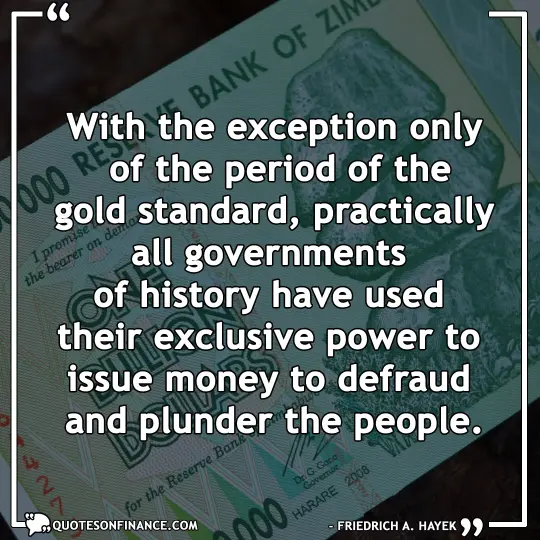
With the exception only of the period of the gold standard, practically all governments of history have used their exclusive power to issue money to defraud and plunder the people.
Our take on this quote:
💰🔒 The Power to Plunder 🔒💰
When money creation turns into a tool for control, it's the people who pay the price. 💡💸
Friedrich Hayek's quote criticizes the way governments have historically used their exclusive power to issue money as a tool to defraud and plunder their citizens. He singles out the gold standard era as an exception, implying that when money was tied to a tangible asset, it limited governments' ability to manipulate currency for their own benefit. Hayek's insight underscores the risks of unchecked government control over monetary policy, where inflation and devaluation can erode wealth and freedom. His words serve as a call to be aware of the hidden costs of government intervention in the money supply.
Instagram: quotesonfinance
Facebook: quotesonfinance
X: QuotesOnFinance